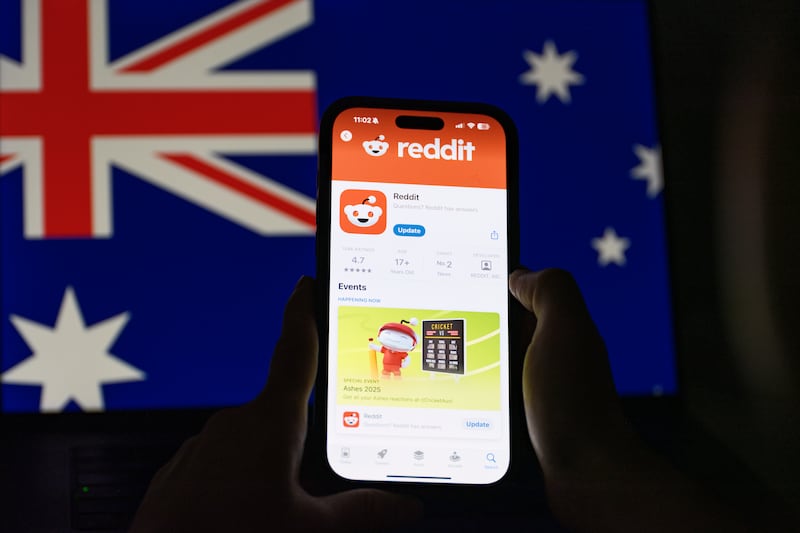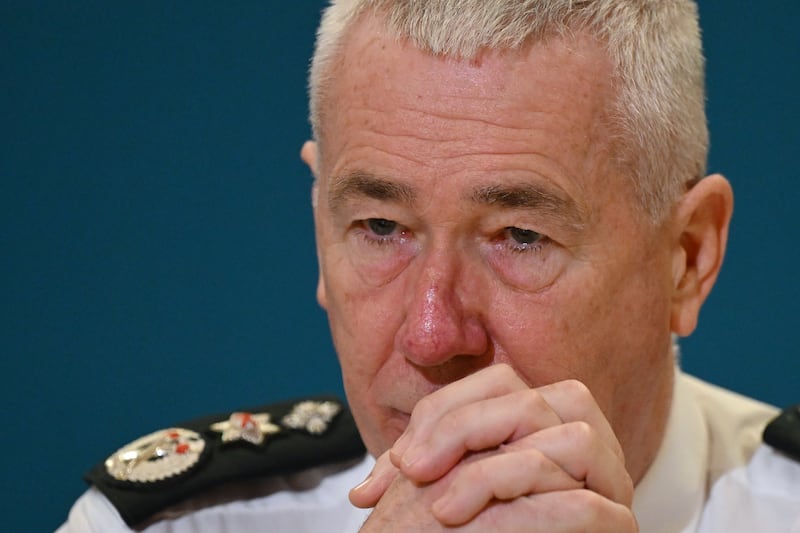On the day before he won his latest World Championship bronze medal, Shane Ryan didn’t have time to panic about what the 50-metres backstroke final held in store. Mostly because he was panicking about something else entirely.
He had completed the paperwork for renewing his American passport a good month previously but now it turned out that the photo he’d sent into the US embassy was scratched. He had a wedding to get to in Philadelphia the Friday before Christmas. No new photo, no new passport.
“So now I’m scrambling the day before the race,” he says. “I’m running around Budapest, trying to figure out where I can find a US-size photo, trying to make sure it’s not scratched this time – however that happened in the first place, I still don’t know. I’m trying to get that done and fill in the paperwork again and, oh, the stress. Leave it to me to make my life quite chaotic.”
Fine margins. The passport came through, albeit a few days later than he’d planned. He made it to Philly for the wedding, by the skin of his teeth. And in Budapest, in a smoking hot 50m backstroke final, he was only beaten by a world junior record from Russian prodigy Miron Lifintsev (swimming as a neutral athlete) and an Australian record from Isaac Cooper. The distance between gold and bronze was 0.09 seconds.
RM Block
All in all, it was a brilliant end to a rocky year. Ryan, who turns 31 in January, came home from the short-course World Championships in Budapest with a bronze medal and three freshly-minted Irish records. It was his second time making a world podium – he’d won bronze in the same event in 2018. Throw in short-course and long-course bronzes at Europeans in 2018 and 2019 and he has put together an impressively prolific career swimming for Ireland.
“I was surprised but not surprised,” he says, in his winningly American way of putting it. “I wasn’t that surprised that I won a medal, I guess. But I was surprised that I went so fast. I was actually winning at one stage. I didn’t know it at the time – I was in the outside lane and I was just concentrating on making it a good finish.

“But it was one of the fastest times in history. I think I’m like seventh in the all-time list now. So that’s pretty cool. But the scary thing is I finished and I saw the result and I was delighted – but I know I can go faster. I just need to race more. I hadn’t really raced since the Olympics.”
Ryan has been around the Irish scene for the best part of a decade now. His father Thomas left Portarlington to play football for a summer in the 1980s and never came home, leading to Shane declaring for Ireland in 2015. He has been through major shoulder reconstruction and still kept trucking. This summer, he became the first ever Irish swimmer to compete at three Olympics.
But even an apparently straightforward sentence like that needs qualifying. Happy and all as he was to compete as part of the Irish medley relay team in Paris, Ryan would much rather have gone in the individual 50m freestyle event. He had the qualifying time and was in the form of his life.
So what happened? Well, it’s simple and it’s complicated. Basically, Ryan achieved his qualifying time for the 50m freestyle in the wrong race. Swim Ireland’s policy for the Paris Games was that qualifying times would only count if they were posted at one of three events – the World Championships in either 2023 or 2024 or the Irish Championships in May of this year.
Ryan’s national record came in June in Belgrade at the European Championships. He didn’t do it at one of the three designated meets so Swim Ireland didn’t pick him. That’s the simple part.
The trickier, more complicated part comes with the staging of those European Championships. They were initially slated to be held in Russia but world events intervened and Belgrade stepped in at the 11th hour. When Swim Ireland was formulating its qualifying policy for Paris, nobody knew exactly when or where the Europeans would be held so they weren’t designated as one of the events where you could post a time.

“I know what the policy said,” Ryan says. “And I like how they have the meets set up, where you know you have to go fast at a particular meet. I do like that because then that gives you a goal and purpose and all that stuff. You either perform on the day or you don’t. That’s good – it puts the onus on you to go and do it.
“But at the end of the day, Swim Ireland should have seen this coming. They knew there’d be Europeans at some stage, either before or after Paris. If was before the Olympic Games, there should have been clause saying something like, ‘If you’re within 1 per cent of the time, you can go to Europeans to get it.’”
As it turned out, the Europeans were held just a few weeks before the Games. Ryan went there knowing that he had missed out on the Games – a combination of poor early season form and unhappiness with his training regime meant that he missed his chances in Doha and Abbottstown. But by the time Belgrade came around, he was on an upward curve. And he wanted everyone in Swim Ireland to sit up and take notice of it.
“I knew going into that meeting in Serbia that I wanted to make a problem for them,” he says. “I wanted to get that A standard. And I knew I was able to get it in the 100 free but sadly I got food poisoning, along with half of my hotel, the night before the event. I missed the 100 free time by 0.05 of a second.
“I rocked up in the first heat of the 50 free and I was like, ‘You know what? Let’s give it a go. Let’s put together a good swim’. And I did and I had fun doing it. But that’s when my head kind of went. As soon as I got the A standard time, I have never been so stressed in all my life.”
In trying – and succeeding – in making a problem for Swim Ireland, Ryan actually made more of a problem for himself. His 21.82 was a personal best, a national record, an Olympic qualifying time and, by some distance, the fastest time in the heats. The difference between him and the third fastest time was the same as the difference between fourth and 16th. He had exploded all expectations.
Problem was, Swim Ireland weren’t suddenly going to come begging him to go to Paris. It had to be the other way around. He had to go to them to ask them to make an exception, given extraordinary circumstances. And to do that, he had to bury himself in paperwork and make an official appeal. Meanwhile, time was ticking and he still had a semi-final and final of a European Championships to swim.
“My head was all over the place. I should have had this great rush of relief – I had just hit a qualifying time for my third Olympics. But I wasn’t going to the Olympics. But also, I was still holding out some hope that I might be. I was looking for all this appeal paperwork, how to go about it, when did it all have to be in for, etc.
“My head just went. I knew what the policy was but still, I was sitting at, like, the 19th best time in the world in an event that I hadn’t done for four years. Getting an A standard like that is extremely difficult. And I was like, ‘Are they not going to bring me?’ I just didn’t know. I had all that uncertainty swirling around me.
“But I also had a job to do. I had the semi-finals and finals of the actual event in Serbia to get ready for. Which didn’t go as well as I wanted them to because I just barely slept. I was so stressed out from trying to get the paperwork in for an appeal – I only had 72 hours or something to get it in. I was trying to figure out how to write it. So it was just stressful to be dealing with that.”
In all the hopping and trotting that weekend, the bald truth of it is that Ryan probably left a European medal behind him. The only people to swim faster than him all week were the gold and silver medallists. He came dead last in the final, 0.35 seconds slower than his heat time. An eternity in one-length freestyle.
In the end, Swim Ireland didn’t budge and Ryan didn’t swim an individual event in Paris. What they did do, however, was put him on the freestyle leg of the medley relay. On the day in La Defense, Ryan delivered. His freestyle split in the medley relay was 47.21 – the third fastest of anyone in the field. Times don’t always correlate and every race is different but still, he knows how fast that is.

“The fact that I swam so fast in that relay leg, I was just like, ‘Ohh, I could have been swimming for a bronze medal here’. I don’t think I’ll ever get over that. It’s the what-if factor. It was tough. But at the same time, I was so grateful to be there and to represent Ireland. And to know that I got myself there.”
As the dust settled after Paris, Ryan had no trouble recalibrating. As one of Ireland’s most experienced Olympians, he had no Olympic hangover to deal with. Instead, he set his sights on Budapest and promised himself he’d finish strong. His bronze medal means he ends 2024 on a high, albeit the low of the summer played its part.
“I definitely used that as fuel for sure. But I just also wanted to show everyone that no matter what you go through or no matter how old you are, you still have an opportunity and also a job to swim fast and to represent the country the best you can.
“I think that was definitely part of it because I didn’t get that opportunity at the Olympic Games. That was why I wanted to get in and to use that as motivation to swim fast. My main thing was I have to earn every single swim.
“I love racing. I love being in that environment. I love seeing people. I love racing people. I definitely used the Olympics as motivation, for me to show everyone what I’m capable of. And I think I did that quite well.”
- Sign up for push alerts and have the best news, analysis and comment delivered directly to your phone
- Join The Irish Times on WhatsApp and stay up to date
- Listen to the Counter Ruck podcast for the best rugby chat and analysis






















